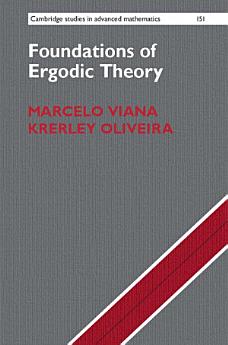Foundations of Ergodic Theory
આ ઇ-પુસ્તક વિશે
લેખક વિશે
Marcelo Viana is Professor of Mathematics at the Instituto Nacional de Matemática Pura e Aplicada (IMPA), Rio de Janeiro, and a leading research expert in ergodic theory and dynamical systems. He has served in several academic organizations, such as the International Mathematical Union (Vice President, 2011–2014), the Brazilian Mathematical Society (President, 2013–2015), the Latin American Mathematical Union (Scientific Coordinator, 2001–2008) and the newly founded Mathematical Council of the Americas. He is also a member of the academies of science of Brazil, Portugal, Chile and the Developing World, and he has received several academic distinctions, including the Grand Croix of Scientific Merit, granted by the President of Brazil, in 2000, and the Ramanujan Prize of ICTP and IMU in 2005. He was an Invited Speaker at the International Congress of Mathematicians in Zurich (1994), a Plenary Speaker at the International Congress of Mathematical Physics (1994), and a Plenary Speaker at the ICM in Berlin (1998). To date, he has supervised thirty-two doctoral theses. Currently, he leads the organization of the ICM 2018 in Rio de Janeiro, and he is also involved in initiatives to improve mathematical education in his country.
Krerley Oliveira is Associate Professor at the Universidade Federal de Alagoas (UFAL), Brazil, where he founded the graduate program in mathematics and the State of Alagoas Math Olympiad program, where he promotes young talent for mathematics. He was a medalist at the Brazilian Mathematical Olympiad (1996) and twice at the Iberoamerican Mathematical Olympiad for university students (1999 and 2000). He was elected an Affiliate Member of the Brazilian Academy of Sciences (2007–2012) and his research is focused on dynamical systems and ergodic theory.








